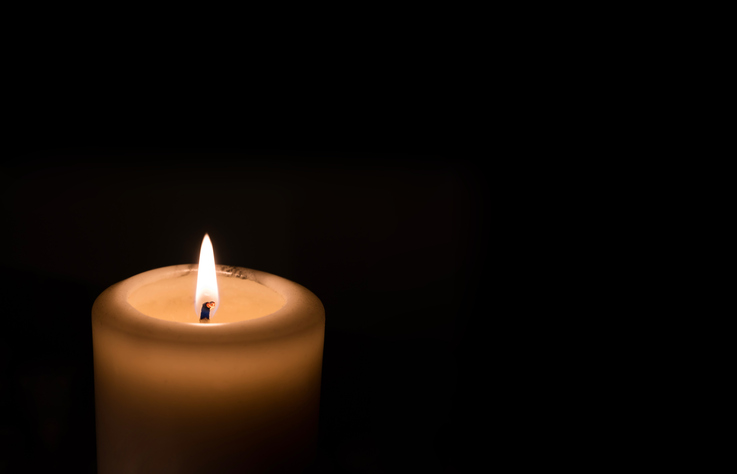Lucille Bridges, the mother of civil rights icon Ruby Bridges, has died at the age of 86 on Wednesday, the Associated Press reported. The longtime New Orleans resident is remembered as the woman who encouraged her daughter to become the first Black student at an all-white elementary school in their hometown.
Lucille sparked one of the iconic scenes of the civil rights era when she comforted six-year-old Ruby during the historic moment, guiding her daughter through a hostile white crowd while going to school.
“Today our country lost a hero. Brave, progressive, a champion for change. She helped alter the course of so many lives by setting me out on my path as a six year old little girl," Ruby wrote on Instagram. "Our nation lost a Mother of the Civil Rights Movement today. And I lost my mom. I love you and am grateful for you. May you Rest In Peace.”
New Orleans Mayor LaToya Cantrell also shared her condolences on Twitter.
"Today we mourn the loss of one of the mothers of the Civil Rights Movement in New Orleans with the passing of Lucille Bridges — mother of five, including Ruby Bridges, who as a first-grader in 1960 was one of six black children to integrate the all-white William Frantz School," the mayor wrote.
Today we mourn the loss of one of the mothers of the Civil Rights Movement in New Orleans with the passing of Lucille Bridges — mother of five, including Ruby Bridges, who as a first-grader in 1960 was one of six black children to integrate the all-white William Frantz School. pic.twitter.com/AMvcxsWbJu
— Mayor LaToya Cantrell (@mayorcantrell) November 11, 2020
Cantrell said it was Lucille who pushed for Ruby to go to an all-white school when the little girl's father, Abon, initially hesitated.
"Lucille's strength was unbounded during this period. Her husband was reluctant when the request came from the National Association for the Advancement of Colored People (NAACP) to participate," the mayor wrote.
Lucille's strength was unbounded during this period. Her husband was reluctant when the request came from the National Association for the Advancement of Colored People (NAACP) to participate.
— Mayor LaToya Cantrell (@mayorcantrell) November 11, 2020
Cantrell also recalled the scene of Ruby walking to school.
"Lucille insisted, seeing the action as an opportunity to help all Black children, and walked Ruby, with federal marshals, past chanting and taunting white protesters and to the schoolhouse," she said. "Mother and daughter both revealed their character and courage."
Lucille insisted, seeing the action as an opportunity to help all Black children, and walked Ruby, with federal marshals, past chanting and taunting white protesters and to the schoolhouse. Mother and daughter both revealed their character and courage. pic.twitter.com/qd7d47QuB9
— Mayor LaToya Cantrell (@mayorcantrell) November 11, 2020
The family suffered severe consequences after sending Ruby to an all-white school. According to the Los Angeles Sentinel, Abon was fired from his job while Lucille was blocked from shopping at grocery stores. Ruby's grandparents were also evicted from their farm.
In an interview with People, Ruby talked about how difficult it must have been for her parents to explain the situation to their little girl.
"What would you say? 'You're about to go to a new school. There's going to be lots of people out there screaming and yelling at you… but you know, I'm going to be with you and you'll have a great day,'" she said. "You just couldn't do that, and so my parents didn't try to explain it to me."
But Ruby's parents simply told her to behave because she's going to a new school.
"And that was it. And I think everything else was left to my imagination," the civil rights icon said. "I always say that what protected me was just having the innocence of a child. And so being a parent myself, now in hindsight, I wouldn't try to explain that to my 6-year-old."
According to WGNO, Lucille only had an elementary school education, but she wanted much more for her children. The woman who was born to sharecroppers in Mississippi eventually moved to New Orleans to give her children a better opportunity for education.
Lucille gave birth to Ruby in Tylertown, Mississippi, in 1954, NBC News reported. That was the same year as the monumental case, Brown vs. the Board of Education of Topeka, Kansas, which ended racial segregation in schools.
Ruby is depicted in a now-famous painting by Norman Rockwell, which shows her in a white dress with her notebooks while being surrounded by U.S. Marshals. The image has once again come to the forefront after Kamala Harris was elected as the first Black vice president.
